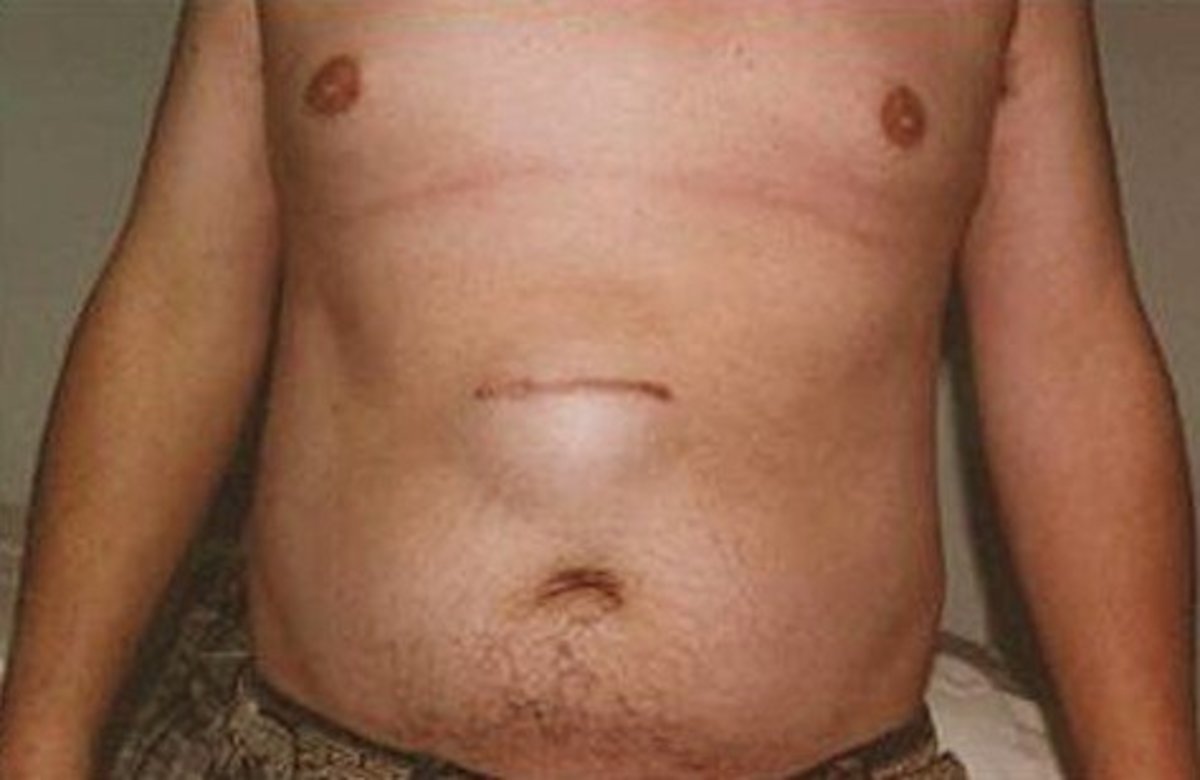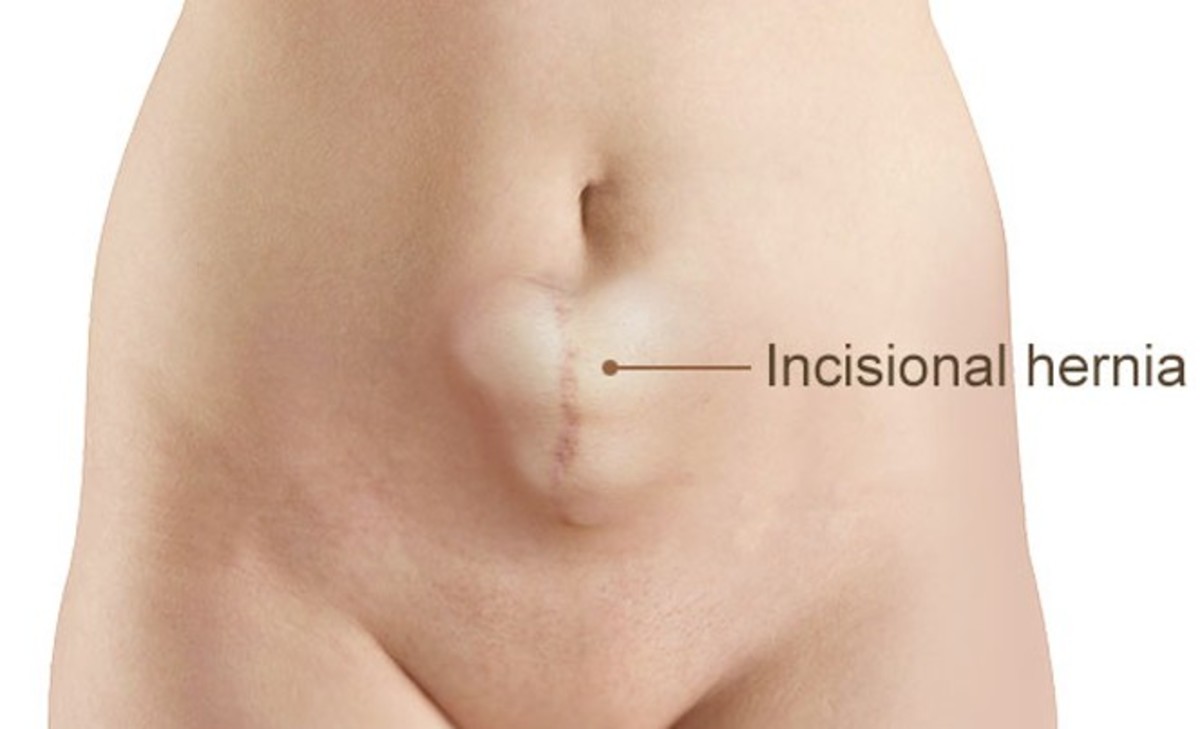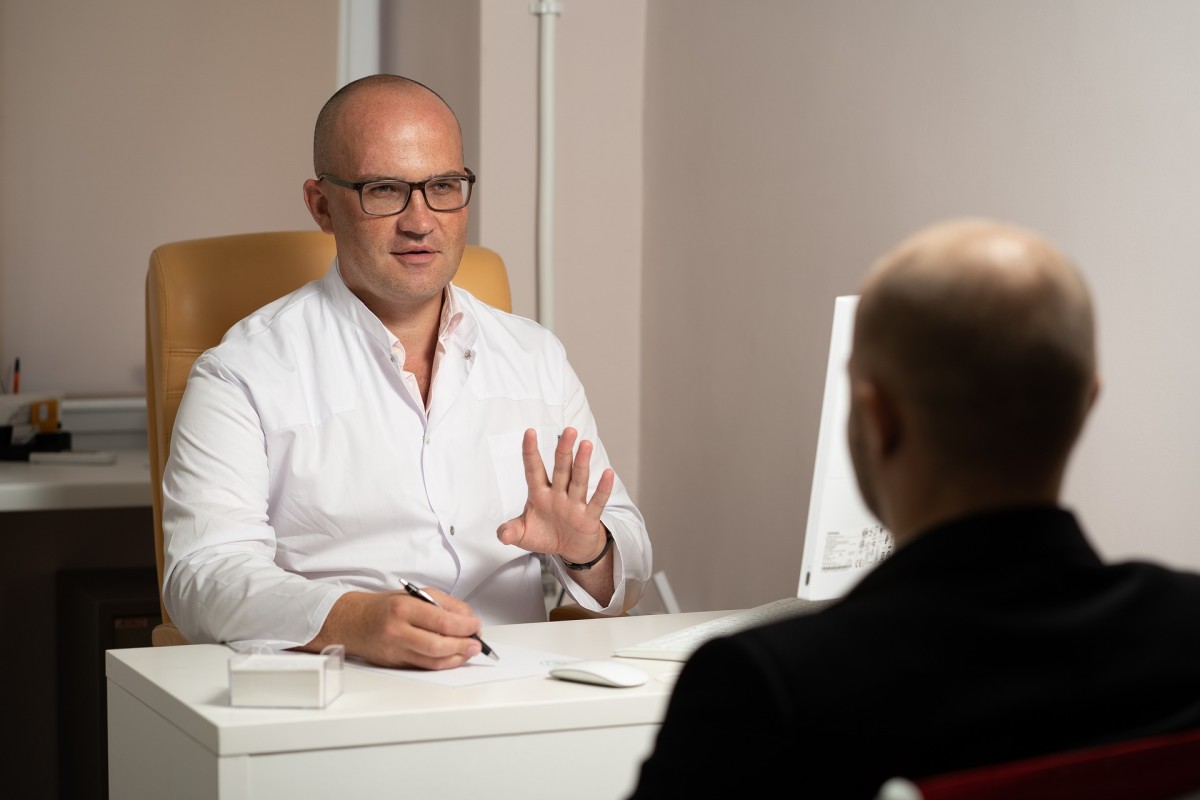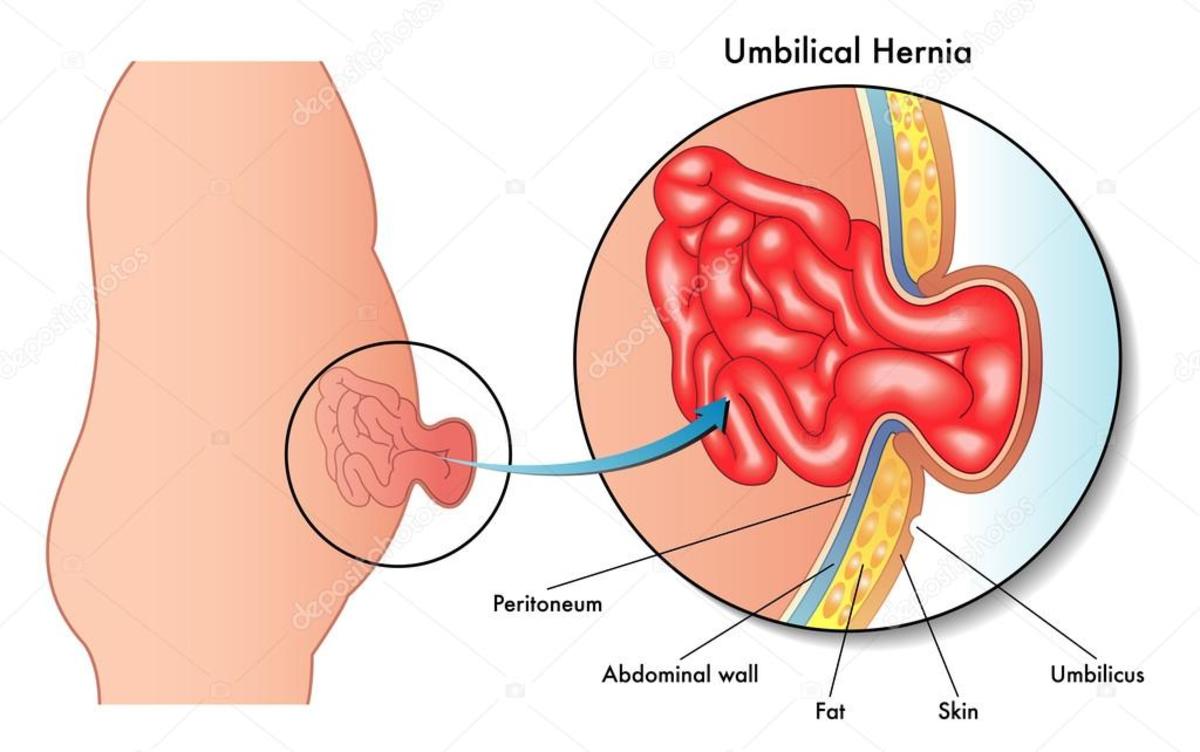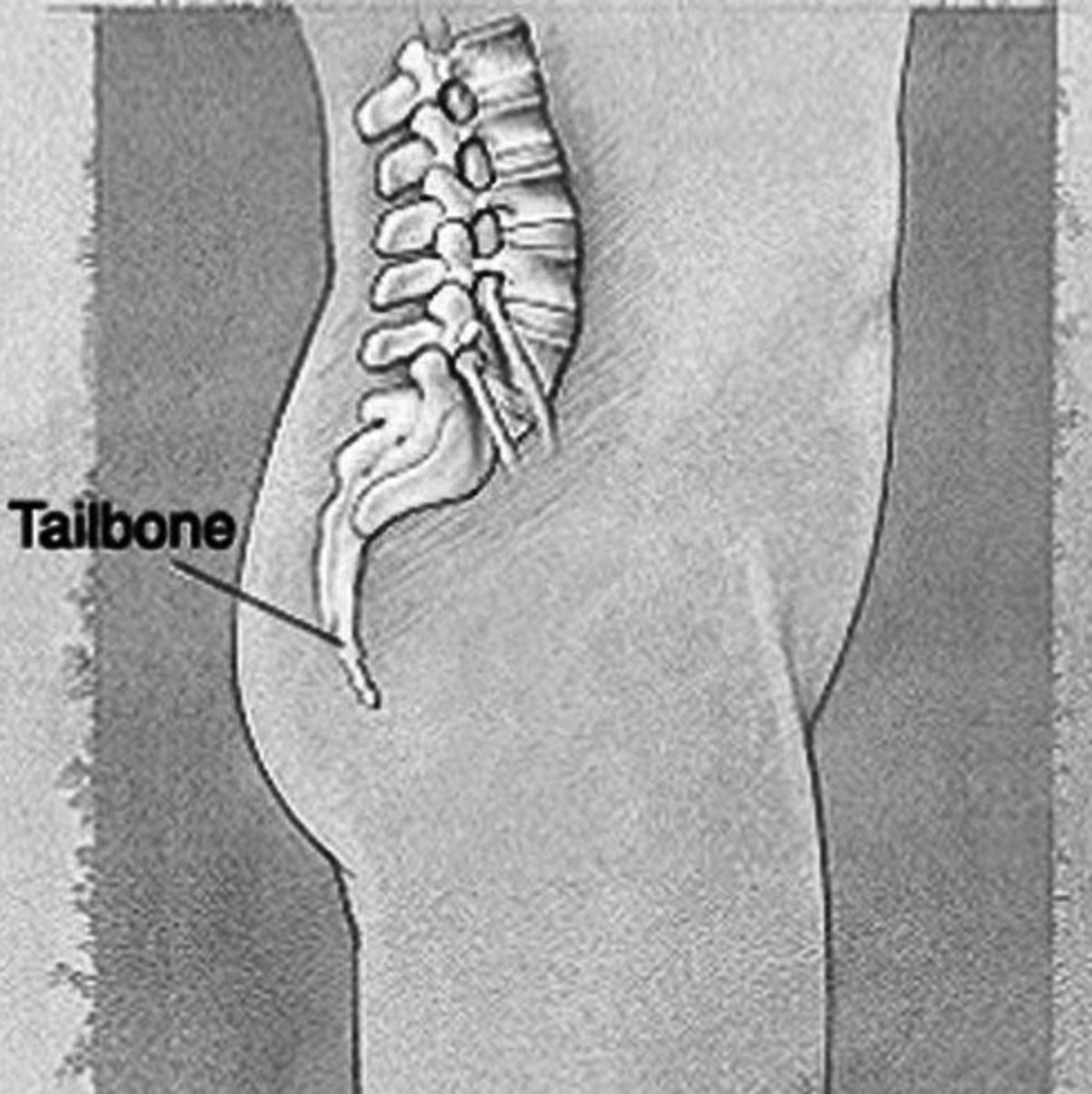What is a Hernia and What are my Treatment Options?
What is a hernia and what types are there
There are many types of hernias and they can affect men, women and children alike. Hernias are basically a defect or hole in a particular part of the body that allows the organ contained in that part of the body to protrude or push through the defect. Hernias can become very painful during strenuous activity such as heavy lifting, exercise or even sneezing. Surgical intervention is almost always required for a hernia. The defect does not heal itself and can worsen over time if left untreated. I have interviewed hundreds of hernia patients for over a decade and almost all of them agree, they had reached a moment in their life when they knew it was time to seek medical attention for their hernia. If you think you have a hernia - see your doctor as soon as you can. The information provided here is not meant to replace professional medical attention.
Let's review a few types of common hernias.
Abdominal hernias - the most common of hernias occur when the abdominal wall weakens and the defect develops. Fatty tissue or abdominal organs push through the weakened area causing a palpable mass or bulge that when pushed on can go back in. When left untreated, abdominal hernias can develop into incarcerated or strangulated hernias and more often than not, these types of hernias require immediate medical attention.
Abdominal hernias are described as Incisional / Ventral, Umbilical, Parastomal and Inguinal, depending on their location in the abdominal region. One by one I will identify each of these hernias below. This information should not be used in place of professional medical attention, but will guide you in describing the type of hernia that you may have. If you think you have a hernia see your doctor as soon as possible.
- Incisional Ventral hernias - This defect type can develop very early in life, even at birth. It can also develop as a result of a previous surgery in the abdominal region such as having your appendix removed. You will notice a bulge in the front area of your abdominal region that may be more pronounce when you stand vs. when you're laying down. If left untreated the bowel may become stuck in the hernia and become strangulated or trapped. Strangulated hernias are potentially life-threatening and require emergent care. The bowel, because it's trapped, may lose blood supply and die off. Your symptoms may include nausea and vomiting, fever, fast heart beat and / or severe abdominal pain. Do not wait! Go to your local emergency room for immediate medical treatment.
- Umbilical hernia - The most obvious sign of this defect type is the protrusion of the belly button. This type of hernia is found mostly in infants and toddlers, but it can affect some adults as well. Normally, Umbilical hernias will close on their own during infancy, but an Umbilical hernia that has not healed in early childhood should be addressed with your child's pediatrician. Adults who have an Umbilical hernia should see a surgeon for treatment. Pain is not usually associated with this hernia type. If your umbilical hernia is causing you pain or if all of a sudden you are vomiting then it's time to have the hernia repaired. In adulthood, this hernia type will not close on it's own.
- Parastomal hernia - Unfortunately, this hernia type occurs often as a result of your colostomy or stoma procedure. When stomas are created there is always the risk of having too large of an opening created during your surgical procedure. In time, the bowel will push through the stoma and you will develop a parastomal hernia. One of the first signs of parastomal hernias is that the colostomy bag which normally fits well over the stoma becomes very difficult to fit and may slip off during movement. You will develop pain at the stoma site as well. Since most colostomies are created as a permanent procedure, you may be at risk for developing a hernia in the long run.
- Inguinal hernia - This hernia type occurs in the groin. You may notice a bulge when you sit up or when you strain such as when you lift something heavy. You may feel pain in the groin that doesn't go away. This type of hernia can be very uncomfortable to you. If the type of work you do requires you to do any type of strenuous activity, you should see a surgeon to discuss repairing your hernia. The type of work you do may have even caused your hernia to develop. If you're ever injured on the job, report it immediately. You may not feel your hernia at first, but it may cause you problems in the future. Some people say that while doing strenuous activity during work they feel a sharp pain in the groin all of a sudden. Some say that they hear a popping sound. This may be a hernia that has developed.
Mesh Implant vs. No Mesh Implant
Using a synthetic material called hernia mesh, during repair of a hernia is your best option for avoiding recurrence of a hernia. Most surgeons will opt to implant mesh as part of your hernia repair vs. not using mesh at all. The mesh is implanted over the hernia defect and it is sutured in place to prevent the bowel from pushing through. However; sometimes the mesh implant can become infected because your body rejects it. Remember, it is something foreign being implanted into your body. If this happens, then you will need to have it removed and in this case your surgeon will simply close the defect without re-implanting mesh. Ask your surgeon which option is best for you.
If you choose to have the mesh implant then be sure to ask which mesh is being used. You will need to document the serial number of your mesh implant to keep for your own records. There are cases where a particular mesh product is recalled. Therefore, it is best that you retain this important information for your records. Most of the hernia mesh that is used for hernia repair is safe and you generally have nothing to worry about.
Should You Get Radiology Testing?
The answer to this question is a tricky one. Hernia's can be felt during a physical exam by your surgeon. However, if you need to ask yourself "can I afford to take a month off of work right now to have my hernia repair?" Or for other reasons you may need to wait, then a radiological test can determine if your hernia is small enough to postpone your surgery for a while. Not all hernias need to be repaired immediately. Elective surgery simply means that you, the patient choose when to have it done. Also, if you are unsure that what you have is a hernia at all, then you definitely want to have radiological testing first. Your primary care physician can order a CT scan which will help determine if you have a hernia or if it's another issue causing your symptoms. If you see a surgeon first, then he/she should have no problem ordering radiological testing prior to surgery. This is your decision to make!
Know Who Your Surgeon Is
You want the best surgeon available to do your surgery. The last thing you need is to find out after your surgery that the surgeon you picked was rated poorly. You definitely want to make sure that he/she is board certified. This means that he/she has been approved by the American Board of Surgeons. See what their actual patients think of them. You can check their scores on reputable websites such as Healthgrades. You can even look them up on physician data bases to see if they've ever had complaints filed against them with the Board of Medical Examiners.
Don't pick the first surgeon you find. Check him/her out first! It's your body and you want the best healthcare afforded to you.
Laparoscopic Vs. Open Repair
In today's cutting edge technology some surgeon's can perform laparoscopic hernia repair. What does this mean? Well, laparoscopic hernia means that instead of the traditional larger incision performed during open hernia repair, your surgeon will use a device called a laparoscope to repair your hernia making multiple tiny incisions. A laparoscope is a lighted surgical instrument that will allow your surgeon to perform the hernia repair while viewing a camera outside of your body. The laparoscope is inserted into one of the tiny incisions and the surgical instruments into the other incisions. During laparoscopic hernia repair your surgeon can repair your hernia just as easily as open repair. This means that your recovery time will be much less painful. And the chances of you returning to work sooner is much greater.
However, not everyone is a candidate for laparoscopic hernia repair, but it doesn't hurt to ask your surgeon what option is best for you. If you have bleeding disorders, risks of general anesthesia due to other medical conditions you may have or if your hernia is incarcerated, strangulated or complicated in any way, your surgeon may advise you against laparoscopic repair. As with any surgical procedure there are risks involved with laparoscopic hernia repair. Some of those risks include: testicular pain or swelling, mesh infection, damage to the spermatic cord and injury to other organs during surgery. It never hurts to go prepared for your consultation with your surgeon.
This content reflects the personal opinions of the author. It is accurate and true to the best of the author’s knowledge and should not be substituted for impartial fact or advice in legal, political, or personal matters.

